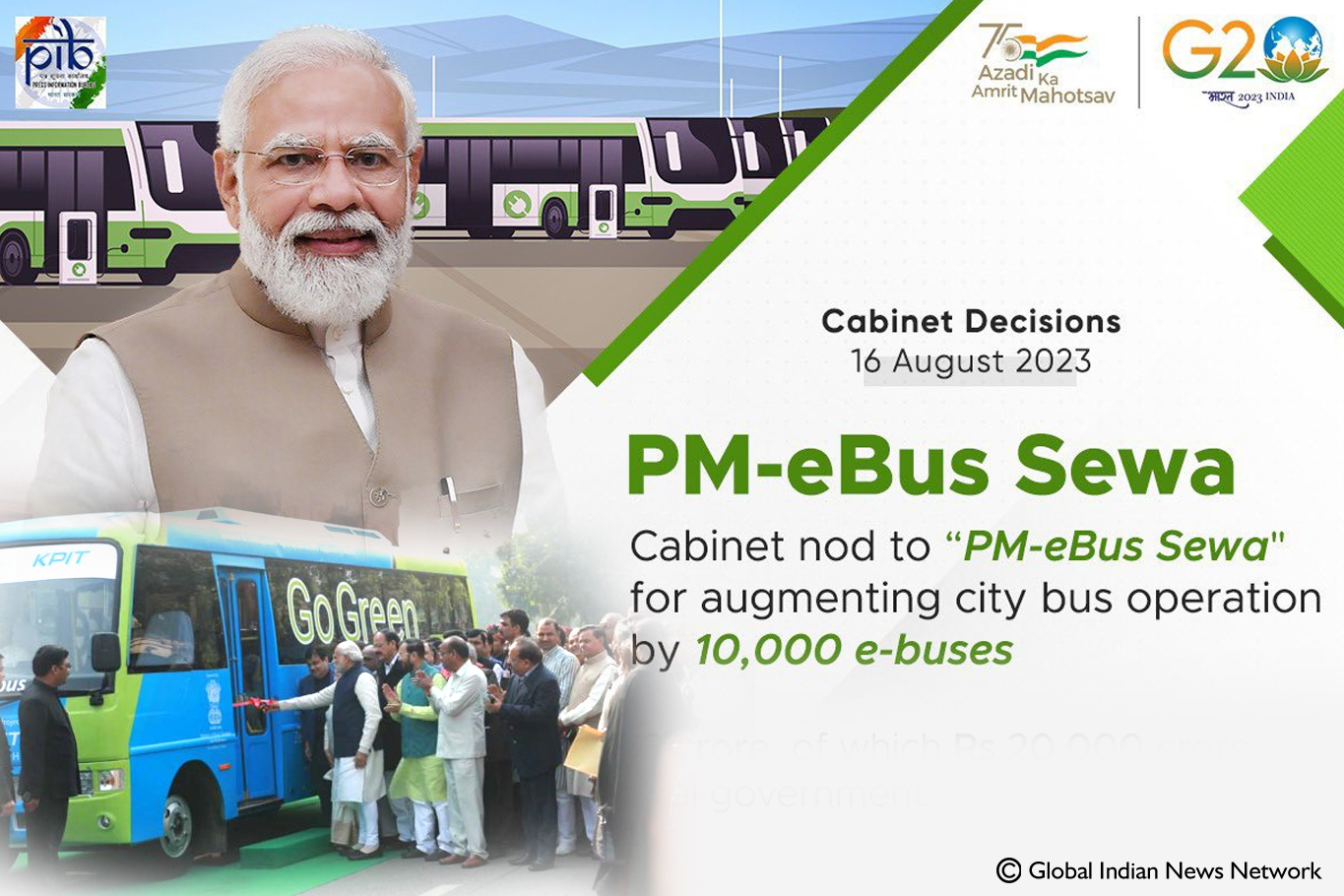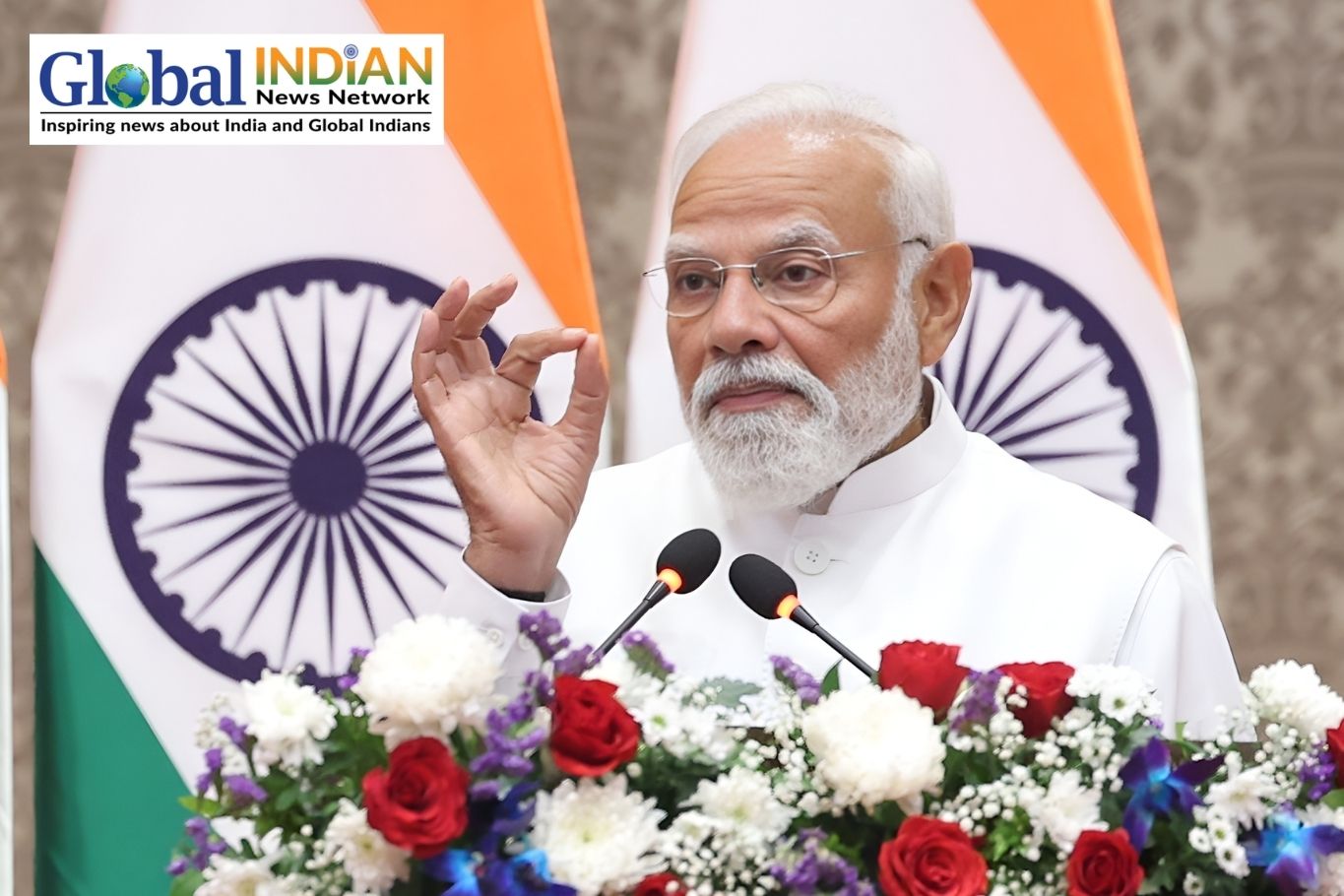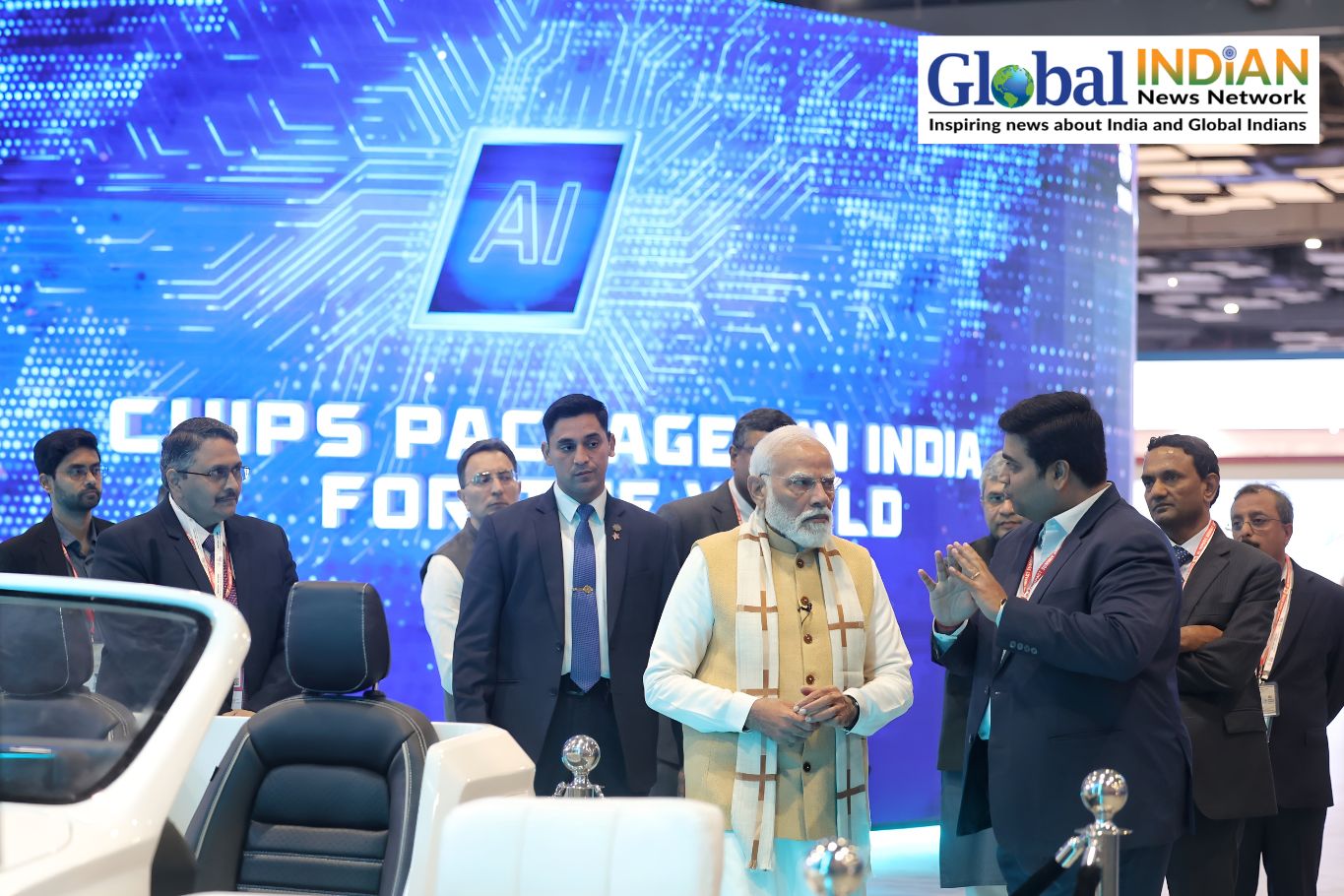 The recently approved ‘PM-eBus Sewa’ initiative by the Union Cabinet is a significant step towards promoting green mobility and enhancing urban transportation across India. The main objective of this initiative is to augment city bus operations by introducing electric buses (e-buses) in various cities, with a particular focus on those areas that lack organized public bus services.
The recently approved ‘PM-eBus Sewa’ initiative by the Union Cabinet is a significant step towards promoting green mobility and enhancing urban transportation across India. The main objective of this initiative is to augment city bus operations by introducing electric buses (e-buses) in various cities, with a particular focus on those areas that lack organized public bus services.
Under the scheme, a total of 10,000 e-buses will be deployed in 169 cities across the country. This deployment will follow a public-private partnership (PPP) model, which encourages collaboration between the government and private sector to efficiently implement and manage the e-bus services. This approach not only accelerates the adoption of electric vehicles but also helps alleviate the burden on the existing transportation infrastructure.
One of the key aspects of the initiative is the upgrade of infrastructure in 181 cities as part of the Green Urban Mobility Initiatives. This infrastructure enhancement will include charging stations, maintenance facilities, and other necessary infrastructure to support the operation of e-buses. By investing in such infrastructure, the government aims to create a conducive environment for the successful implementation of electric mobility solutions.
The total estimated cost of the ‘PM-eBus Sewa’ scheme is around ₹57,613 crore (approximately $7.8 billion). The central government will provide substantial support amounting to ₹20,000 crore (approximately $2.7 billion) to facilitate the execution of the project. This financial backing from the government plays a crucial role in encouraging the adoption of electric buses by mitigating some of the initial costs associated with such a transition.
The initiative is expected to bring about multiple benefits. Firstly, it will contribute to reducing air pollution and greenhouse gas emissions, given that electric buses are environment-friendly and produce zero tailpipe emissions. Secondly, it will lead to a reduction in the overall operational costs as compared to traditional diesel buses, contributing to economic sustainability.
Moreover, the ‘PM-eBus Sewa’ scheme aligns with the central government’s commitment to promoting clean and sustainable transportation. The introduction of e-buses also aligns with global trends towards electric mobility and positions India as a frontrunner in embracing innovative solutions for urban transportation.
By supporting bus operations for a period of 10 years, the initiative aims to create a lasting impact on the urban transportation landscape. It will not only address current transportation challenges but also set a foundation for cleaner and more efficient public transportation systems in the long run.










